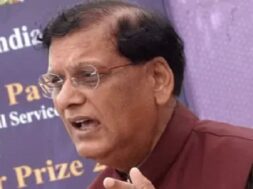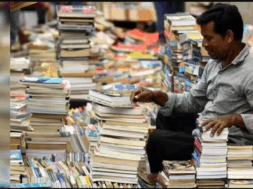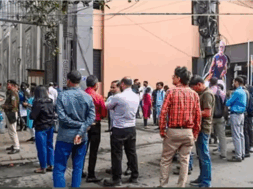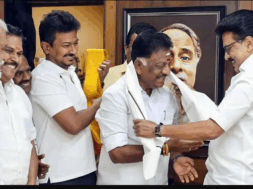
Reconciliation and reform – lessons from Bindeshwar Pathak on social work and harmony
(Guru Prakash)
As a living civilisation, we have been witness to several social reform traditions in our journey. Bindeshwar Pathak represented one such tradition, which was premised on the idea of social cohesion or samrasta in our understanding. As a Brahmin, he was initially derided in his own community and family for making sanitation the mission of his life. None other than his own father-in-law was, for a considerable amount of time, of the opinion that he committed a great mistake by marrying his daughter to Pathak. Nevertheless, the sheer persistence of the man led him to create Sulabh International which eventually became synonymous with the idea of public toilets in the country.
Nobel Prize-winning author V S Naipaul said in An Area of Darkness that, “Indians defecate everywhere. They defecate, mostly, beside the railway tracks. But they also defecate on the beaches; they defecate on the hills; they defecate on the river banks; they defecate on the streets; they never look for cover.” As a society, we have reconciled with some gruesome realities in the past like open defecation and manual scavenging. Pathak waged a war against both. His life and work operated on the sentiments and emotions of people who were told that they were destined to work as manual scavengers. For instance, before the abrogation of Article 370, Valmikis in Jammu and Kashmir were de facto not allowed to pursue any other occupation apart from those related with sanitation as this profession was linked with their domicile status. The practice of continued discrimination has been a part of our daily lives. Dalit literature is replete with the pain and agonies of manual scavengers. Noted contemporary Dalit authors from Sharankumar Limbale to Naimishrai have written extensively about this in their books and anthologies. This injustice must be a collective responsibility because people dying in the process of cleaning human waste is unacceptable in this day and age.
The transformation of Dalit reality was made possible due to the revolutionary interventions by people like Bindeshwar Pathak. On Independence Day in 2014, PM Modi gave a clarion call to end open defecation in pursuance of Sustainable Development Goals by initiating Swachh Bharat Abhiyan. There are stark memories of that announcement being mocked. Political leaders and elite intellectual establishments did not appreciate the idea of conversation on toilets from the majestic ramparts of the Red Fort. Perhaps Pathak and PM Modi represent a worldview that initially invites resistance but eventually leads to a marked social revolution. Kabir, in his time, challenged conventions in his quest for an equitable and sensitive society.














